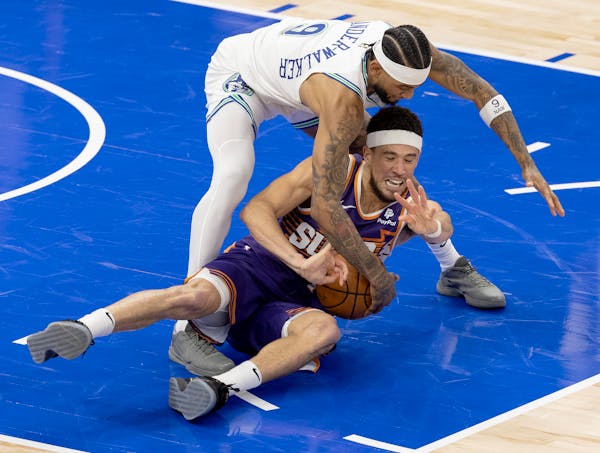Prescription pain pill abuse isn't one of the lighter topics Gov. Mark Dayton has talked about this year. But on Tuesday, speaking at Minnesota's first conference on the topic, he drove home a serious point about the issue with a personal story and a touch of humor.
After a minor dental procedure, he said, he received a prescription for 30 opioid painkillers. He took a few and tossed the rest.
"Maybe I should have made a sign and sold them on Summit Avenue," he quipped, which drew a roar from the more than 1,000 people gathered at the University of Minnesota for the daylong event.
"How did this explode?" he added in a more serious tone. "We created this problem."
Reflecting the level of interest in addictive opioids and the intensity of the problem they have created, registration for "The Pain. Pill. Problem" conference ballooned so quickly that it had to be moved from a smaller venue to Northrop Auditorium. Among those attending were physicians, health care professionals, public health officials, addiction treatment providers, corrections officials and community leaders.
"Doctors, pharmacists, political leaders, legislators, regulators and civic leaders must address this problem without finger-pointing or blame," said U.S. Attorney Andrew Luger.
An emotional opening speech by athlete and author Dick Beardsley described how a few surgeries can turn a drug-free man into a blacking-out addict. Beardsley recounted how he once downed 240 oxycodone-containing Percocet pills in eight hours.
"I would go doctor-hopping for pills, forging prescriptions and hoping I wouldn't get caught," said Beardsley, who has been free of addiction for nearly 19 years. "People don't like to talk about this kind of addiction, but we've got to get it out in the open."
State Human Services Commissioner Lucinda Jesson said pain pills now kill more people than heroin and cocaine combined.
Dr. Chris Johnson said he can't work an emergency-room shift without seeing the impact painkillers have on patients and their families. "Doctors never prescribed pills like this 15 to 20 years ago," he said. "In the culture of pain, there are other ways to help manage it. "
Dr. Courtney Baechler, who works at Allina Health's Penny George Institute for Health and Healing in Minneapolis, discussed her group's alternative pain-treatment methods, which include fewer pills and a more holistic approach to treatment with acupuncture, massage, nutrition education, exercise and spiritual guidance. Patient feedback studies have found significant reduction in pain and anxiety, demonstrating that treatment outside the clinical training taught in medical school can make an impact, she said.
Dr. Jeff Schiff, the Department of Human Services' medical director, described an enhanced opioid prescription-monitoring program for the 19,000 Minnesotans regularly prescribed opiates through the state's publicly funded health care programs. The goal is to provide proper care and also decrease overprescribing, he said.
He said that long-term pain pill use doesn't effectively end chronic pain and that it is harmful to the patient. And relying on the much-used 1-to-10 pain description scale is too arbitrary and can lead to overprescribing.
Schiff said the department wants to develop a statewide protocol for prescribers to take some of the guesswork out of a patient's pain treatment. When a doctor's practice is judged on how efficiently patients are examined and moved along, "it's sometimes easier to quickly write a prescription," he said.
"Prescription drug abuse has reached crisis levels, and we should leave no stone unturned in our efforts to reverse this deadly trend," said U.S. Sen. Amy Klobuchar, D-Minn. "I was proud to participate in today's critical summit on developing new tools and sharing best practices to help fight this devastating epidemic."
The morning speeches were followed by panel discussions.
"It's great to finally be having conversations like this, with all the role players involved," said Johnson, the emergency-room physician. "The traditional way of medicine isn't working."
David Chanen • 612-673-4465

University of Minnesota police arrest 9 after pro-Palestinian encampment set up on campus
2 dead in Lino Lakes, no known threat to public, police say
Teen charged with murder in deadly St. Paul shooting last month

